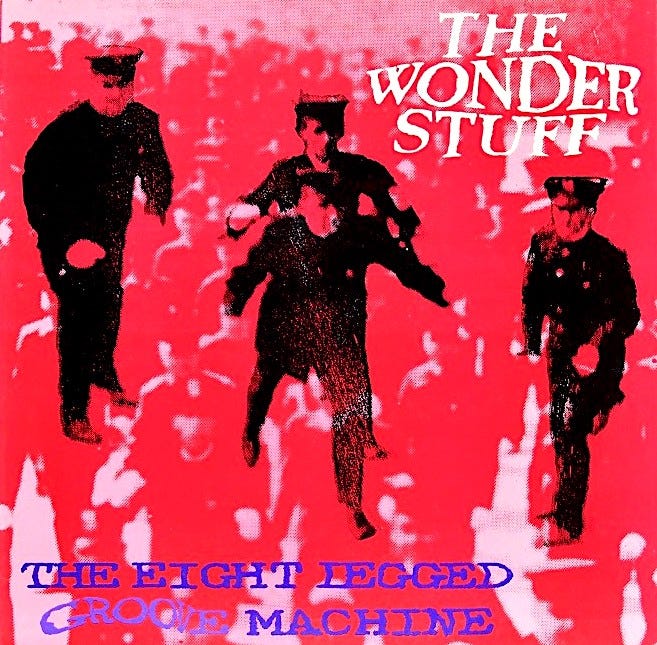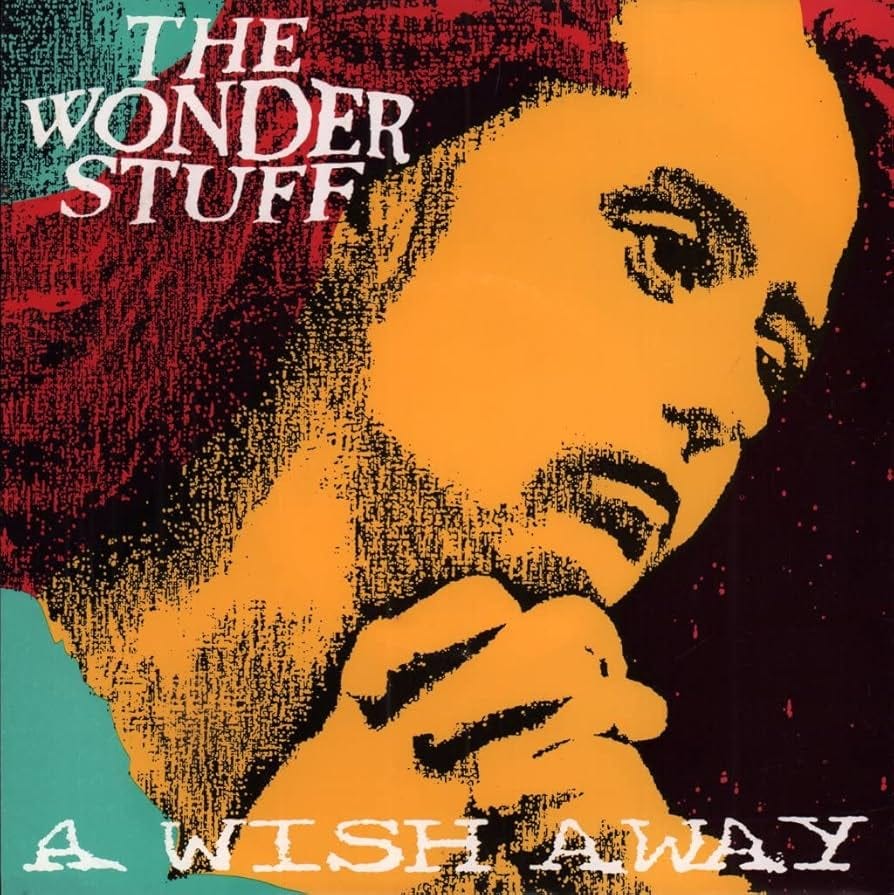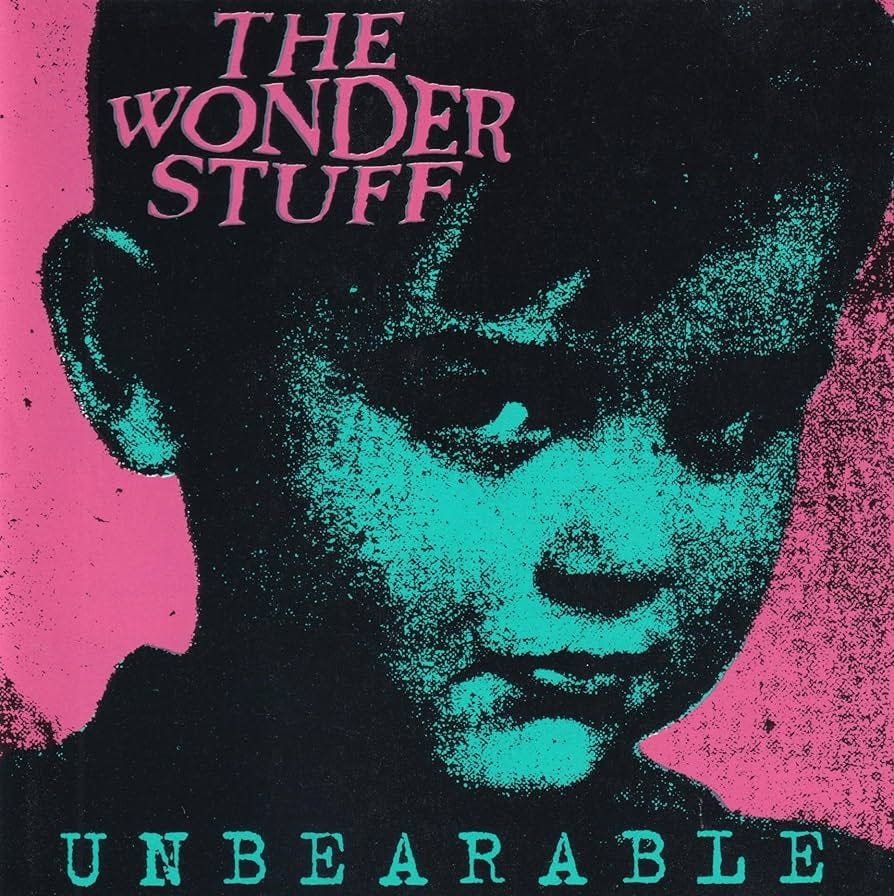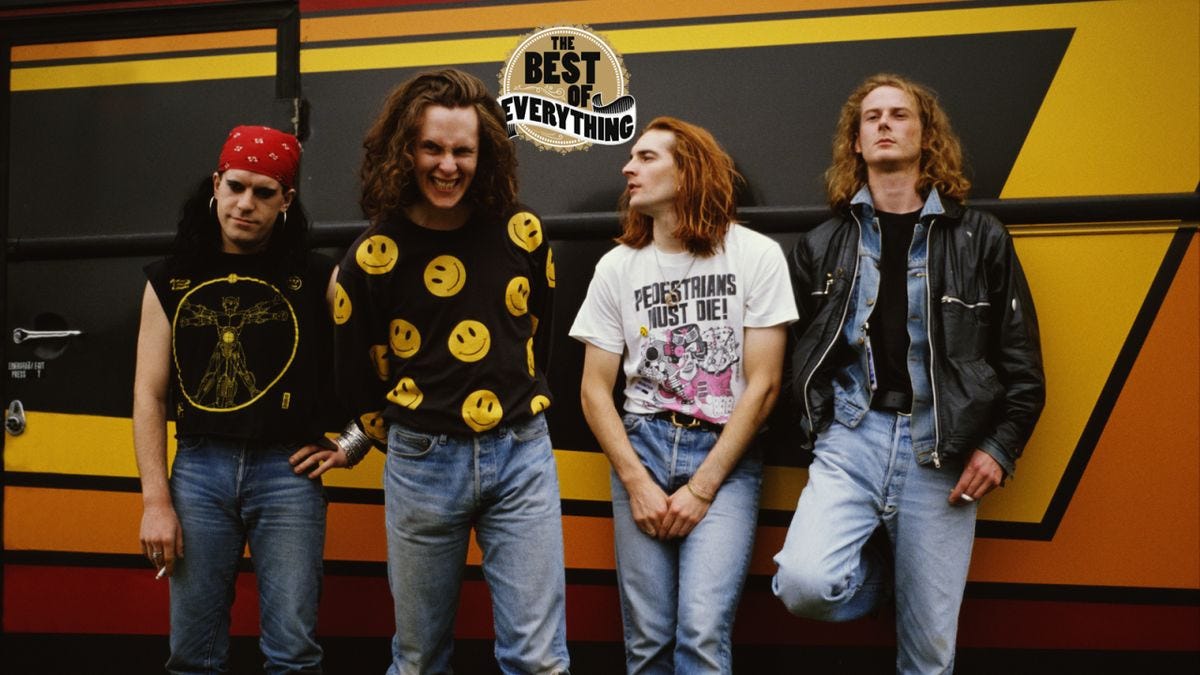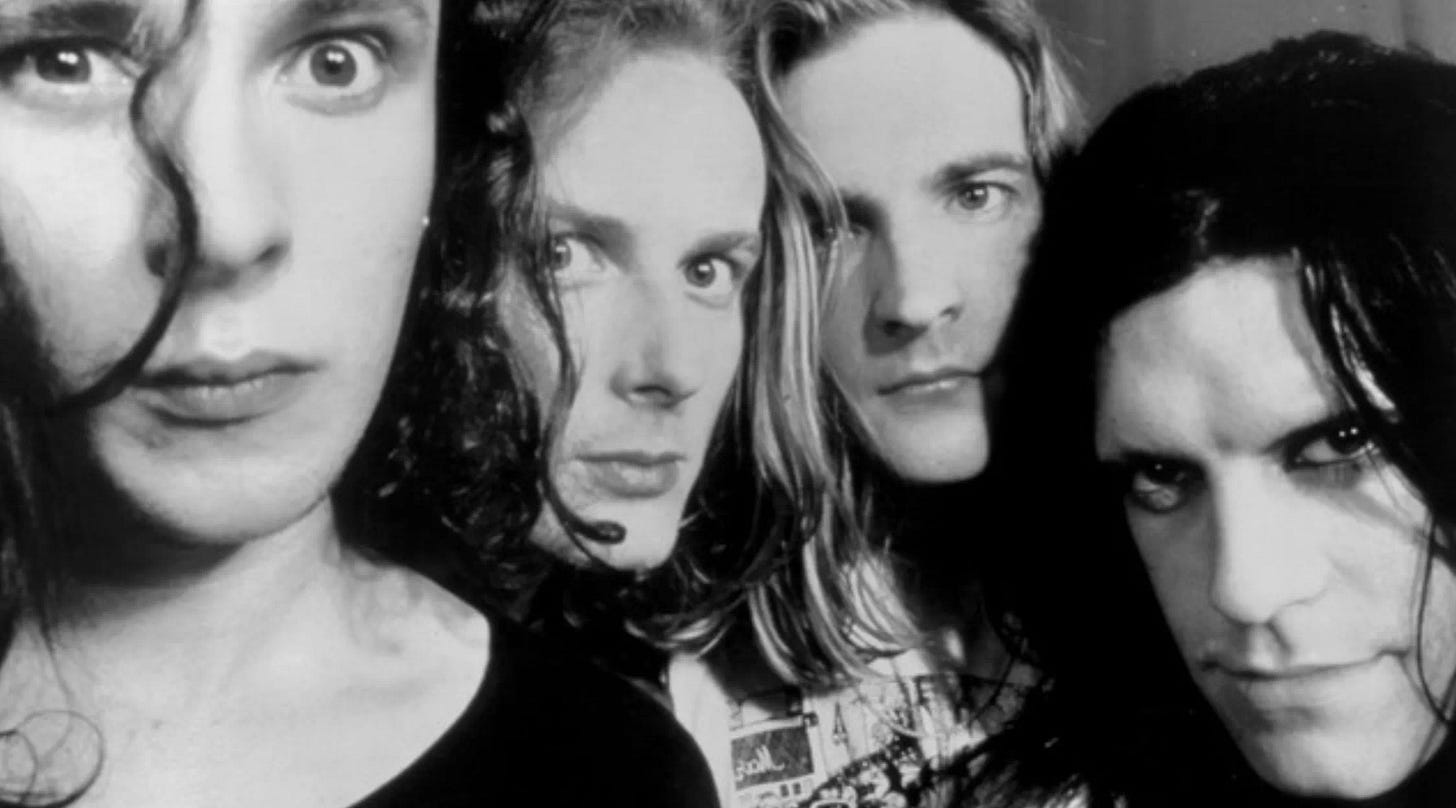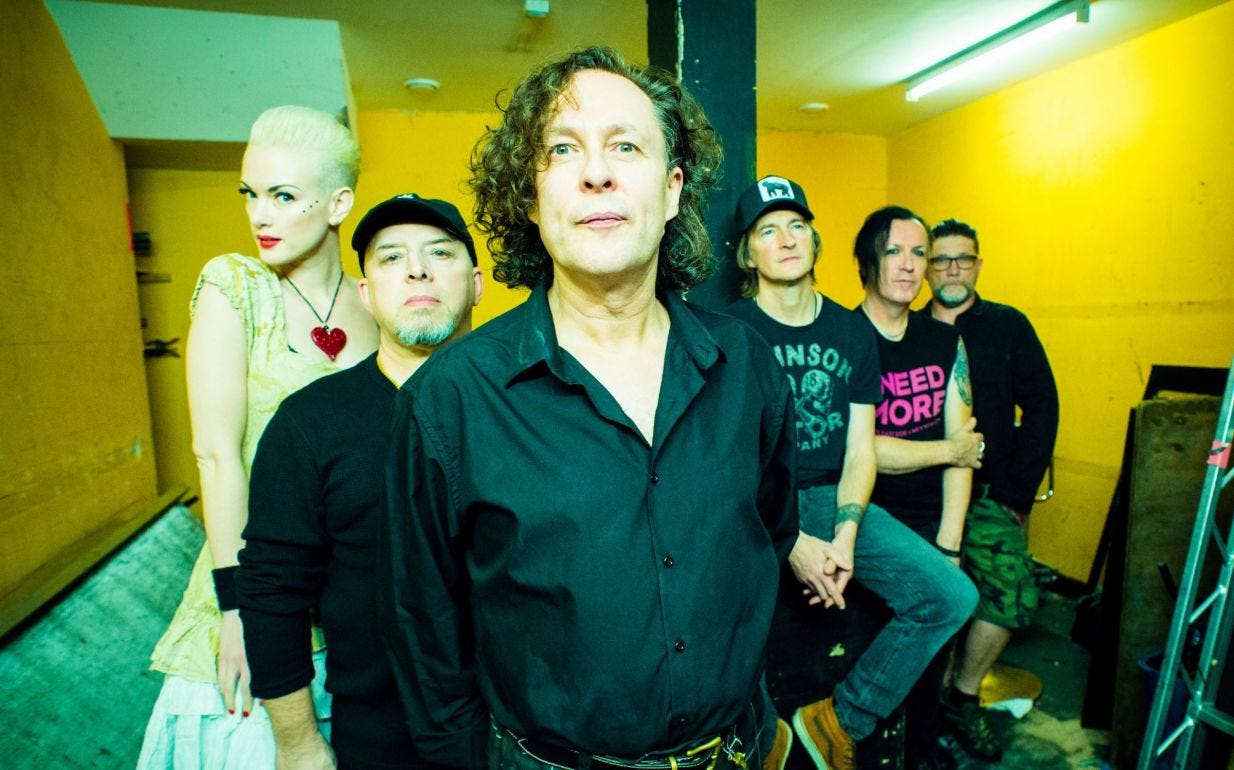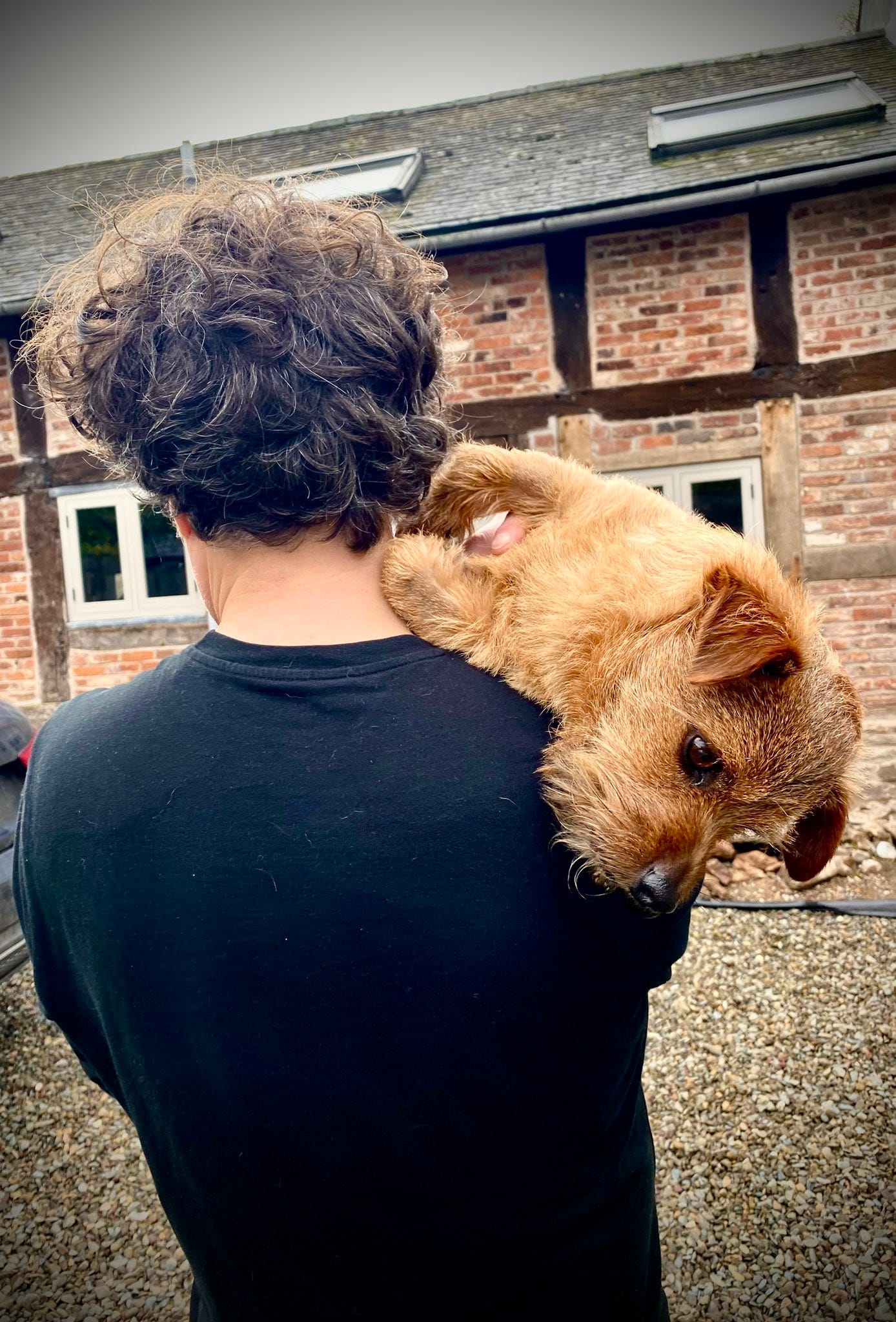One from The Vault: The Wonder Stuff: The Eight Legged Groove Machine
Or: I was a Teenage Groovemonger. ALBUM REVIEW: The Wonder Stuff's debut LP and where it sits in time, place and the imagination.
THE WONDER STUFF: THE EIGHT LEGGED GROOVE MACHINE
THE FAR OUT RECORDING COMPANY / POLYDOR
1988
Some say Hup! - a recent Farcebook post suggests both Muse and Mark Ronson have cited it as influential.
I can’t confirm the accuracy of the original statement.
Others may well say Never Loved Elvis. God knows, the singles were everywhere and the success of Size of a Cow gave us a real sense of vindication.
Our boys had gone and done it.
Nowadays, the rewards come in the form of Miles Hunt’s accessibility on social media. He really is an attentive, humble, lovely man who finds time to effortlessly engage with his “friends”.
And he has The Dearest Dog In Pop in The Winkster.
Through this medium - and his frequent solo live outings - one of our greatest living songwriters still gives me hours of pleasure with his compelling narratives and unstoppable charisma.
It all started for me, though, with The Eight Legged Groove Machine, The Wonder Stuff’s spotless debut, stacked to the gills with snidey, punky power pop, which, at the time, had more sneering, snarky attitude and bounce than anything else I was aware of.
I came to them via Pop Will Eat Itself; I was obsessed with their early Grebo singles and how they ultimately manifested themselves, with a Beatbox backing, in 1987, on Box Frenzy.
I loved them.
That Mansell lad was undeniably cool.
Their self-deprecating style appealed to me - they were proud to be ugly. Relished being crap. They referenced my pop culture in almost every line.
However, they lost something intangible in their transformation from indie punk guitar louts to sampling and looping House-Meisters. I applauded the evolution, but I missed the guitars.
And then there was Unbearable.
I can’t remember where I first heard A Wish Away, The Wonder Stuff’s third single, but it hit like a hammer. I seem to recall it being on the telly, but I could be wrong. It was my first exposure to Miles Hunt, Malc Treece, Rob Jones and Martin Gilkes and it was a moment of considerable weight.
The band’s infectious songwriting resonated - and their aesthetic - all stripey t-shirts, bobbed haircuts, loping moves and heavily stickered guitars - felt related to the Poppies (though I didn’t realise then how intrinsically they were connected) but The Wonder Stuff were the brighter, more astute and grinning missing link - that I hadn’t realised I needed to fill the Black Country Massacre sized hole that PWEI had left behind.
What I do remember is going into Norwich almost immediately and snapping up A Wish Away as well as the preceding single, Give Give Give Me More More More and their scintillating debut 45, Unbearable.
It was Unbearable that smacked me around and dug into my Pop Receptors the deepest.
The lyrics tickled me:
“I didn’t like you very much when I met you, and now I like you even less…”
But what was clear was that the songs - multiple B-sides included - were all fucking ace.
No stinkers.
Not long afterwards, I was holding the band’s first album - and best nickname for a band ever - The Eight Legged Groove Machine - in my sweaty eighteen-year-old palms.
In a blink of an eye, I was jiving down the front, at the Fine City’s own UEA, as a fully-fledged fanboy on the Groovers on Manouevres tour. I remember feeling especially sated after that performance; I’d had my fill in the best possible way.
I ended up seeing The Wonder Stuff play a lot. All the way through my student days, which were delightfully devoid of hard and fast dividing lines between genres, The Van der Stuif sat next to Mudhoney, Dinosaur Jr, Tad, Nirvana, Sonic Youth and Pixies as comfortably as Leatherface, Pop Will Eat Itself and the Neddies.
They were always fun, and even though the fiddle and folk elements that followed were less my thing, the songwriting was always impeccable. Show me a better run of pop singles than the breathless chase between Unbearable and Size of A Cow.
I doubt you’ll find one.
I drifted away a bit after that, but I always came back to The Eight Legged Groove Machine if I craved some feisty, sassy and unbeatable tuneage.
And I still do, more than 35 years later. It’s a classic album that has stayed with me, and at this stage of the game, clearly, always will.
Events begin with Red Berry Joy Town’s petulant hand on hip and accompanying snarl to camera:
“We knew we’d find you crying
On top of a dustbin hill.
Grinning at the passers by
Through the flowers on your window sill…”
The delivery is key, but the song establishes the rules of engagement for the LP; these are going to be relatable, every day tales of urban annoyance, disdain, hope, arrogance and impatience.
Snotty.
Oh, the exuberance of youth. The tone became all the more cynical on future releases. Here though, it’s more the sarcasm that drips like honey across every song.
No, For The Thirteenth Time follows at speed, epitomising that impatience with its chorus of thirteen actual “No”s.
Count ‘em.
And then - bang - we’re in with the addictive acoustic intro of fourth single It’s Yer (dum-dum*) Money I’m After Baby:
“Well I know that it’s hard and I know that it’s tough
When each thing you’re giving me is just not enough -
Forget your heart, it’s your bank I want to break
It’s just yer (dum-dum*) money I’m after baby.”
*Dum-dums added for effect.
The thing to realise, consider and celebrate is that at the time there was no real reference for such self-centred, congratulatory and unapologetically conceited lyrics - masterfully wound with a sense of humour that could only be written by someone so self-aware as to be the opposite of the persona that was being adopted.
It was all a fun ride - matching the sneering tone of Lydon with the pop-suss of Slade and the uniquely self-deprecating fuck-wittery of the Black Country.
Somewhat boldly, Rue the Day is next, a sparsely arranged acoustic ballad, which gives us space for a breath, before the second trilogy of magnificence comes in the form of second single Give, Give, Give Me More, More, More, Merry Go Round and Side One closer, The Animals and Me:
“Cats and dogs have got is sussed,
They worm their way into your trust,
Spend their whole lives getting fussed,
Oh, I have been there.”
Miles tries to convince us that he is as meek as a sheep, but we know better. I just love that he’s looked at the creatures of the world and wondered if there’s any inspiration there for making an easy life of it.
Lyrically, none of The Wonder Stuff’s peers came close to displaying the same level of charismatic lyrical artistry and dour humour as they did. Miles comes from the school of The Pistols, Bauhaus and The Cure. Not in tone - but in lyrical consideration. Much more than contemporaries like Teenage Fanclub, The Primitives or Primal Scream.
There’s a Smithsonian sense of drama, light-heartedness, masked erudition and ineptitude at play in his words that makes them compelling without allowing them to get stuck in the U-bend of their own colon.
One of Miles Hunt’s strengths is his ability to utilise a recognisable phrase and centre a line around it - there’s a palpable joy in the phraseology - and the bastardisation of it, followed by a salty twist.
It’s not on this album, but take Size of a Cow. Almost every line has a recognisable phrase within it that’s being toyed with:
“Don't you think it's funny that nothing's what it seems
When you're not looking forward?
Me, I'd like to think that life is like a drink
And I'm hoping that it tastes like bourbon
You know that I've been drunk a thousand times
And these should be the best days of my life
Life - it's not what I thought it was
Damn blast, look at my past
I'm ripping up my feet over broken glass
I said, oh wow, look at me now
I'm building up my problems to the size of a cow.”
He’s an absolute master of cliché, expression and adage - usually with a slightly spicy skew that elevates it from the banal.
Side Two goes by in a jiffy. A Wish Away launches another triptych of excellence, which includes album highlight Grin, and then Mother and I.
Following the same structure as Side One, we’re then presented with a midpoint lull, in Some Sad Someone.
If there is a weak song on the LP, this is it - it doesn’t quite take you to the same places that the others songs do.
It serves its purpose though, because now that our stitch is wearing off, we can gallop to the end, through the master-blasts of Ruby Horse, Unbearable and album closer, Poison:
“I’m gonna kiss your face
And run like thunder
I’m gonna grab your hair
And pull you under…”
An ode to grappling with different sides of the same personality.
Or perhaps a missive on what Lemmy called White Line Fever.
Who knows.
I don’t want to cast aspersions.
Throughout the entire record, the band performs brilliantly. Sadly though, too many significant members of The Groove Machine are no longer with us, but their memories linger on in the artistry of the LP.
The Dear Bass Thing, Rob Jones, died in 1993. Martin Gilkes, whose drums are so integral to the sound of the album, in 2006. And Pat Collier, whose production work on this album is truly, truly outstanding, in July this year.
RIP the lot of yer.
We’re not so far behind you.
Credit should also go to The Far Out Recording Company’s wonderful graphic artist Hazel Pitt, whose take on Warhol via Wolves perfectly encapsulated the band’s gaudy aesthetic and made their records even more collectible because they were designed as such lush Pop Artifacts. She illustrated and caught the vibe of the times so well with The Wonder Stuff sleeves.
I urge you to rake through your record collection and root out The Eight Legged Groove Machine if you’ve not spun it for a while. It’s lost none of its cocky swagger and still delights and charms, just as much as it did back then.
The passing of time has done little to calm The Snark. It’s still obnoxious, self-centred and artfully wry, and with distance, it’s easier to see how there was a window of time when the band was truly the most exciting thing these shores were spitting out and into the racks at Woolies.
The tendrils of their lineage are clearer now too - from Slade to the Sex Pistols to The Bunnymen to The Stuffies. It wasn’t so obvious back then.
The Eight Legged Groove Machine symbolises a time and place for me between two worlds. The dawn of adulthood, the carefree self-governance years of being a student, and that blissful time when all you really had to worry about was if you could hitch a lift to the next gig or not. Not yet a wage slave.
Momentarily free.
It’s a place of honour. A role only one record can play for every listener. The soundtrack to the cusp of kidulthood.
And that, as they say, is pretty Far Out.
Ave, Funsters!





